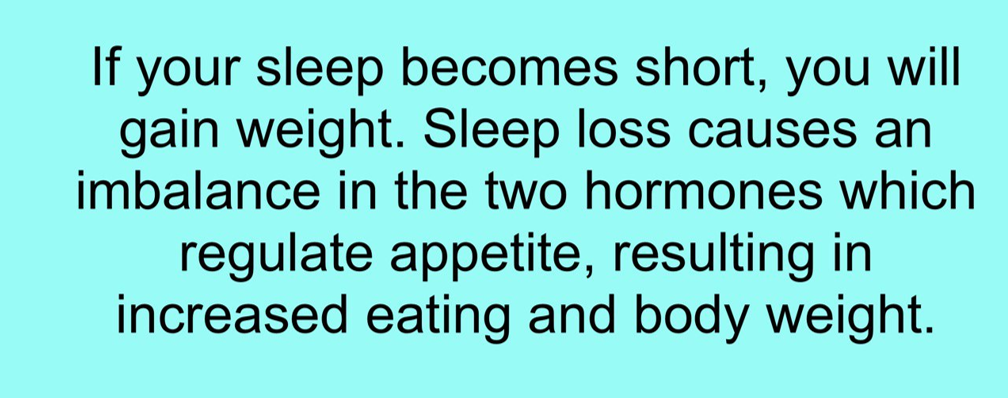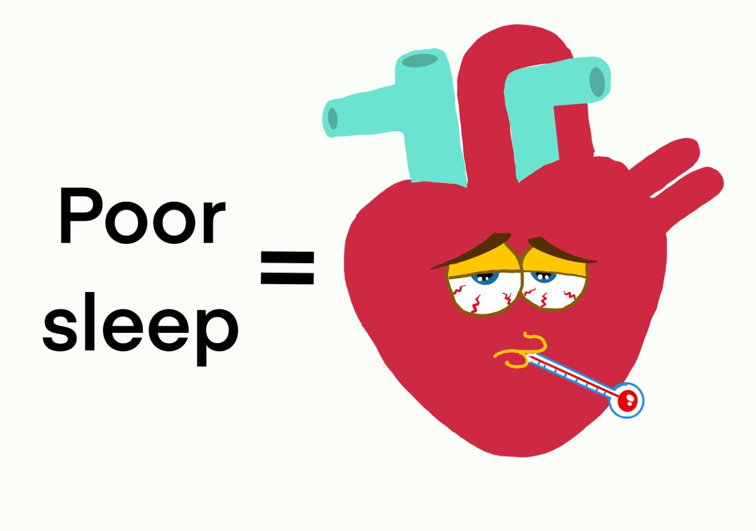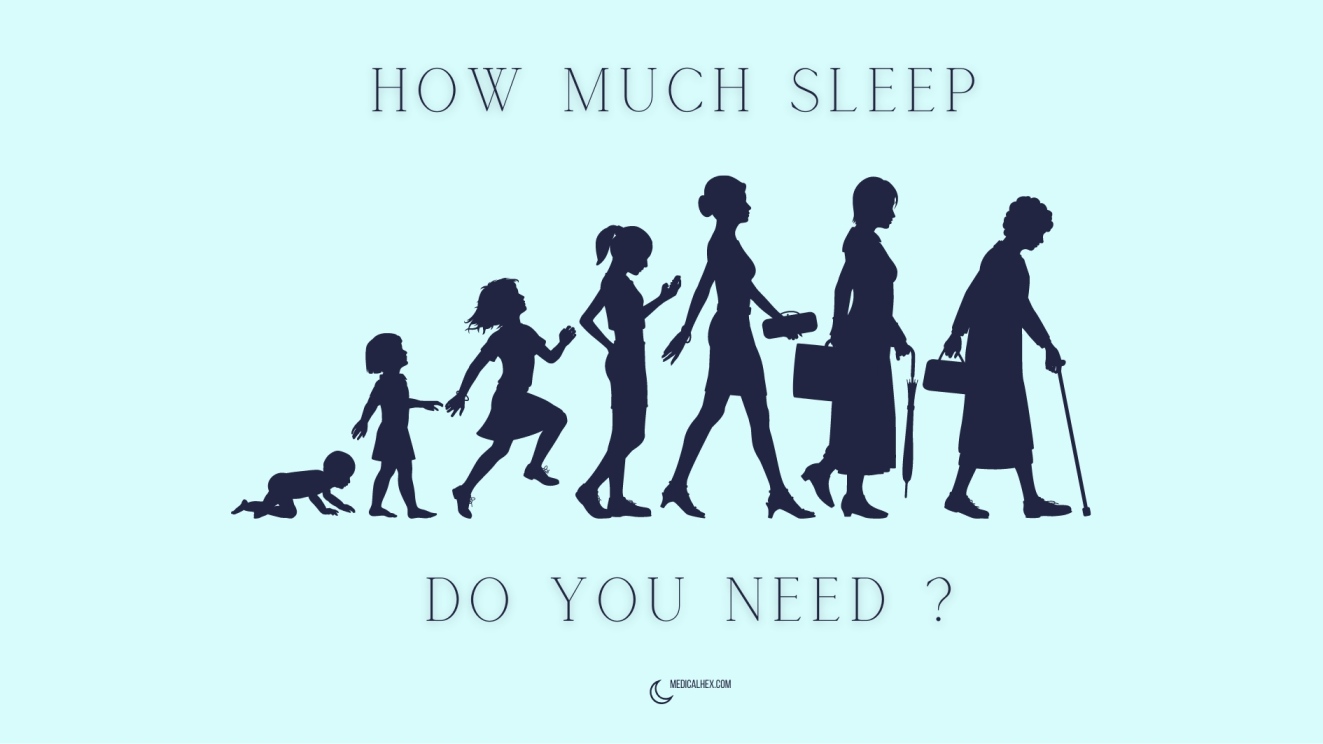1. Good sleep is important for your memory
2. Good sleep will make you emotionally stable
3. There’s a link between poor sleep quality and obesity
4. Poor sleep is bad for your heart
5. Poor sleep and type 2 diabetes
6. Poor sleep is associated with increasing the risk of heart attacks
Approximately 6 million years of human evolution, and mother nature seems to believe that sleep is valuable enough to outweigh the risk of being defenseless for 8 hours, among many other things.
Sleep affects almost all aspects of your well-being, from your physical to your mental health. It helps your body fight cancer and the flu, and it also affects many aspects of brain function, including the ability to learn and memorize, creativity, and concentration.
Sleep loss imposes devastating effects on the body, it’s linked to Alzheimer's disease, depression, anxiety, mood changes, heart attacks, cancer, diabetes, and obesity.
Having a good night’s sleep is a non-negotiable concept, here are 8 reasons that explain why:
Sleep improves and affects many aspects of brain function, including the ability to learn, creativity, concentration, making logical decisions and analyzing the world around us.
In addition, good quality sleep improves your memory.
Sleep plays a crucial role in the memory consolidation process; you could think of memory consolidation as the process that saves the memories you make during the day. In order to remember new information your brain needs a sufficient amount of sleep to process and store important information.
You may have noticed that after staying awake all night you are more irritable the following day. Sleep has a significant effect on your emotions and your mood. Sleep deprivation is associated with irritability, anger, and mood swings, and it plays havoc with your emotional state.
A study on two groups of healthy adults was conducted to find out the effects of sleep deprivation on the amygdala. Amygdala has an important role in regulating emotions (such as rage and fear), it also plays a role in the fight-or-flight response.
In the study, one group of participants had gotten 8 hours of sleep (control group), while the other group stayed awake the entire night.
The following day, brain scans clearly demonstrated that the amygdala showed a 60% increase in its reactivity to emotional stimuli in the sleep-deprived group, while the control group who had slept normally the night before showed no such increase. The brain scans of the control group showed a normal amygdala with a modest reactivity degree.
Generally, the current studies support the existence of a link between sleep duration and weight gain 1.
Despite the fact that different age groups differ in the duration of sleep that they need, people from any age group are likely to gain weight if they don’t get enough sleep.
This could be due to the effect of sleep on hormones that regulate appetite. According to a study 2, not getting enough sleep decreases leptin and increases ghrelin levels. Leptin is an appetite suppressor while ghrelin is an appetite inducer. As a result, these changes will probably increase appetite, leading to weight gain.
If you are trying to lose weight, it’s necessary to get adequate sleep. Click to read about how much sleep is enough for you.

Lack of sleep and sleep deprivation are associated with worsening cardiovascular diseases.
According to a study done in 2011, shorter sleep duration is associated with a 45% risk of developing CHD and death by CHD (coronary heart disease). These conclusions were made after tracking 0.5 million individuals from various ages, races and 8 different countries.
When compared to those who get 7-8 hours of sleep a night, adults above 45 years of age who sleep less than 6 hours a night are 200% more likely to have a stroke or a heart attack throughout their life. These findings emphasize the importance of getting enough sleep in the prevention of cardiovascular diseases.

The less an individual sleeps, the more their body loses its ability to manage calories very well (especially blood sugar levels). In addition to that, the less you sleep, the more you eat. In these two ways, not getting 7-8 hours of quality sleep a night will increase the probability that you will develop type 2 diabetes.
If a healthy individual sleeps for 4 hours a night for 6 nights in a row, the effectiveness of their body to absorb a standard dose of glucose will decrease by 40%. This statement suggests the individual is pre-diabetic. If sleep loss continues for long periods of time, it surely will contribute to the rise of type 2 diabetes in the individual.
Each time a year, 1.5 billion people have to decrease their sleep by 1 hour or less, an adjustment known as daylight saving time.
If you look at millions of daily hospital records, you find out that this “1-hour” reduction leads to a 24 % increase in heart attack cases the following day.
While in the autumn when 1 hour of sleep is gained, heart attack numbers decrease by 21%. These data suggest a clear correlation between heart attacks and poor sleep quality.
In addition to heart attacks, similar effects are seen on car crashes, road traffic accidents, and even suicide cases.
There’s a very strong association between how well we sleep and our immune system. Sleeping less than 6 or 7 hours a night has demolishing effects on your immune system.
In the short term, even a small loss of sleep decreases immune function.
For example, if you get 4 hours of sleep for 1 night instead of 7-9, you will suffer a 70% reduction in the activity of natural killer cells. Natural killer cells are one of the body's defenses against cancer cells.
Prolonged sleep deprivation is also associated with a weak immune system and a decreased number of natural killer cells in your body. People who sleep less than 7 hours a night are approximately three times more likely to catch a common cold.
Epidemiological data have shown that night workers who have disturbed sleep patterns have weaker immune functions and increased rates of respiratory tract infections. 3
In addition to its effects on our physical health, sleep has tremendous effects on mental health. According to a study 4 done by Tsuno N et al., 90% of individuals with depression have poor sleep quality.
Bad sleeping routines contribute to major mental illnesses including depression, anxiety, schizophrenia, PTSD (post-traumatic stress disorder), and bipolar disorder. Sleep disturbances could be a neglected factor that needs further thought and consideration when it comes to dealing with mental illnesses.
Since sleep is very important, it’s necessary to optimize it and make sure you are getting good quality sleep.
Read to find out about how can you make your sleep better.
1. Patel, S. R., & Hu, F. B. (2008). Short Sleep Duration and Weight Gain: A Systematic Review. Obesity, 16(3), 643–653. doi:10.1038/oby.2007.118
https://pubmed.ncbi.nlm.nih.gov/18239586/
2. Taheri, S., Lin, L., Austin, D., Young, T., & Mignot, E. (2004). Short Sleep Duration Is Associated with Reduced Leptin, Elevated Ghrelin, and Increased Body Mass Index. PLoS Medicine, 1(3), e62. doi:10.1371/journal.pmed.0010062
ncbi.nlm.nih.gov/pmc/articles/PMC535701/
3. Irwin, M., McClintick, J., Costlow, C., Fortner, M., White, J. and Gillin, J.C., 1996. Partial night sleep deprivation reduces natural killer and cellular immune responses in humans. The FASEB journal, 10(5), pp.643-653.
https://pubmed.ncbi.nlm.nih.gov/8621064/
4. Tsuno N, Besset A, Ritchie K. Sleep and depression. J Clin Psychiatry. 2005 Oct;66(10):1254-69. doi: 10.4088/jcp.v66n1008. PMID: 16259539.
https://pubmed.ncbi.nlm.nih.gov/16259539/
5. Ellenbogen JM. Cognitive benefits of sleep and their loss due to sleep deprivation. Neurology. 2005 Apr 12;64(7):E25-7. doi: 10.1212/01.wnl.0000164850.68115.81. PMID: 15824327.
6. Mednick, S. C., Makovski, T., Cai, D. J., & Jiang, Y. V. (2009). Sleep and rest facilitate implicit memory in a visual search task. Vision research, 49(21), 2557–2565.
7. Nakano, Y., Miura, 1., Mara, I., Aono, H., Miyana, N., Miyajima, K., Tabuchi, T., and Kosaka, H. (1982) The effect of shift work on cellular immune function.). Human Ergol. 11,131-137
The answer is: it depends on your age and other factors. Click to find the recommended sleep hours for your age group.

The urethra is a muscular canal that extends from the neck of the bladder to the exterior of body. Read more about the anatomy of urethra in this article.

Dosage guide of Lisinopril: Click to read about the dose for your specific condition and age group.

Learn about medical uses, safety profile, mechanisms and interactions of statins.

Comprehensive guide on Ozempic (semaglutide), including its uses, dosage, side effects, warnings, and interactions.
.png)